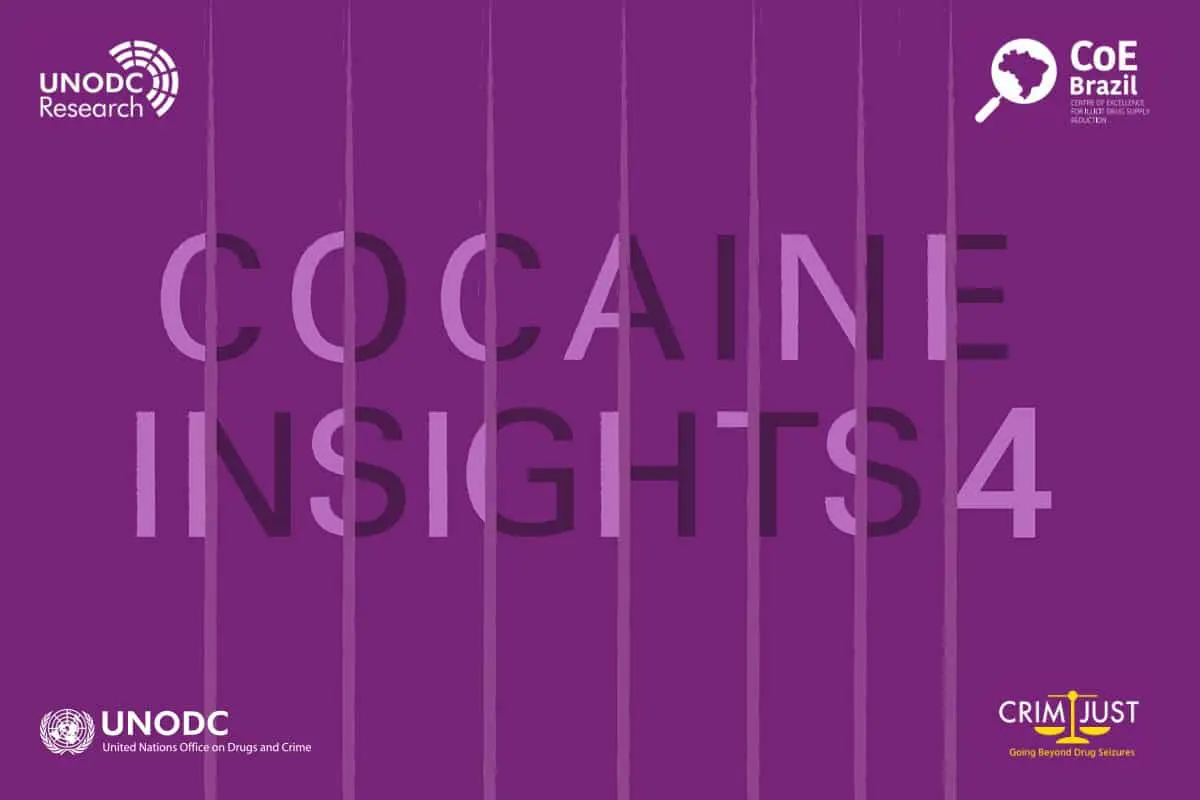Vienna (Austria), 20 July 2022 — The global production of cocaine has reached record levels, amounting to 1,982 tons as of 2020. Trafficking routes are determined by production and consumption locations, and Brazil sits in the path for cocaine trafficking from South America to Africa and Europe.
COVID-related measures appear to have impacted the internal consolidation, redistribution and management of cocaine stocks within the country.
COVID-19 and its impact on the cocaine supply chain in and around Brazil is the subject of the fourth in the series of ‘Cocaine Insights’, released today by the United Nations Office on Drugs and Crime (UNODC) and the Centre of Excellence for Illicit Drug Supply Reduction in Brazil (CoE).
The publication points out important changes in drug trafficking and organized crime patterns through the new contexts of the pandemic, in relation to the regional and transatlantic chain of production and distribution of cocaine.
It finds that COVID-19 affected law enforcement activities, disrupted the activity of organized crime groups, impacted cocaine and cannabis flows and induced changes in trafficking modalities, amongst other impacts on the cocaine trade in Brazil and the region.
COVID-19 lockdown measures in Brazil allowed law enforcement to dedicate more resources to drug interdiction. Thus, seizures of cocaine and cannabis both increased sharply in number. The report also details how cannabis supply expanded across Brazil while the impact on cocaine varied across federal units, despite an overall decline in the quantities seized. Cocaine seizures data from the country suggests that, following the onset of COVID-19, western provinces saw a rising trend of cocaine while a falling trend can be observed in the eastern provinces, as flows from seaports out of the country declined.
Cocaine Insights 4 shows that COVID-related measures brought about difficulties for organized crime groups to move imported cocaine internally towards exit ports and areas of consumption. The difficulties in cross-border transportation of cocaine likely led to a surge in clandestine flights and thus to a surge in flows into western border states.
A drop in cocaine seizures at Brazilian seaports occurred in parallel with declines in cocaine seized in destination countries, such as those in Western and Central Europe, in consignments known to have departed from Brazil. The disruption in flows from Brazil appears to have been temporary, though.
Cocaine Insights 4 also paints a picture of COVID accelerating already existing trends in cocaine trafficking. COVID forced law enforcement agencies in Brazil to adapt and hampered some police activities, yet conversely prompted lockdown measures that facilitated drug interdiction on roads. Along with this, the report details how cannabis availability expanded across Brazil after the onset of COVID-19, driven by big increases in flows from Paraguay.
Cocaine Insights 4 also highlights how criminal organizations continue to be more specialized and increasingly use new technologies. This complex scenario reinforces the need to continue strengthening international cooperation to address transnational organized crime in an articulate way, focusing on people and comprehensively considering economic and social aspects.
Further information
The series ‘Cocaine Insights,’ developed by UNODC in the framework of the CRIMJUST programme and in cooperation with partners and stakeholders at national, regional, and international levels, delivers in an accessible and informative format the latest knowledge and trends on issues related to cocaine markets: the illicit cocaine trade, its impact, and the outlook for the future. This publication is the result of a collaboration between UNODC and the CoE. The CoE is a partnership between UNODC, the National Secretariat for Drug Policies and Assets Management of the Ministry of Justice and Public Security, and the United Nations Development Program in Brazil.
For more information on the series click here.







